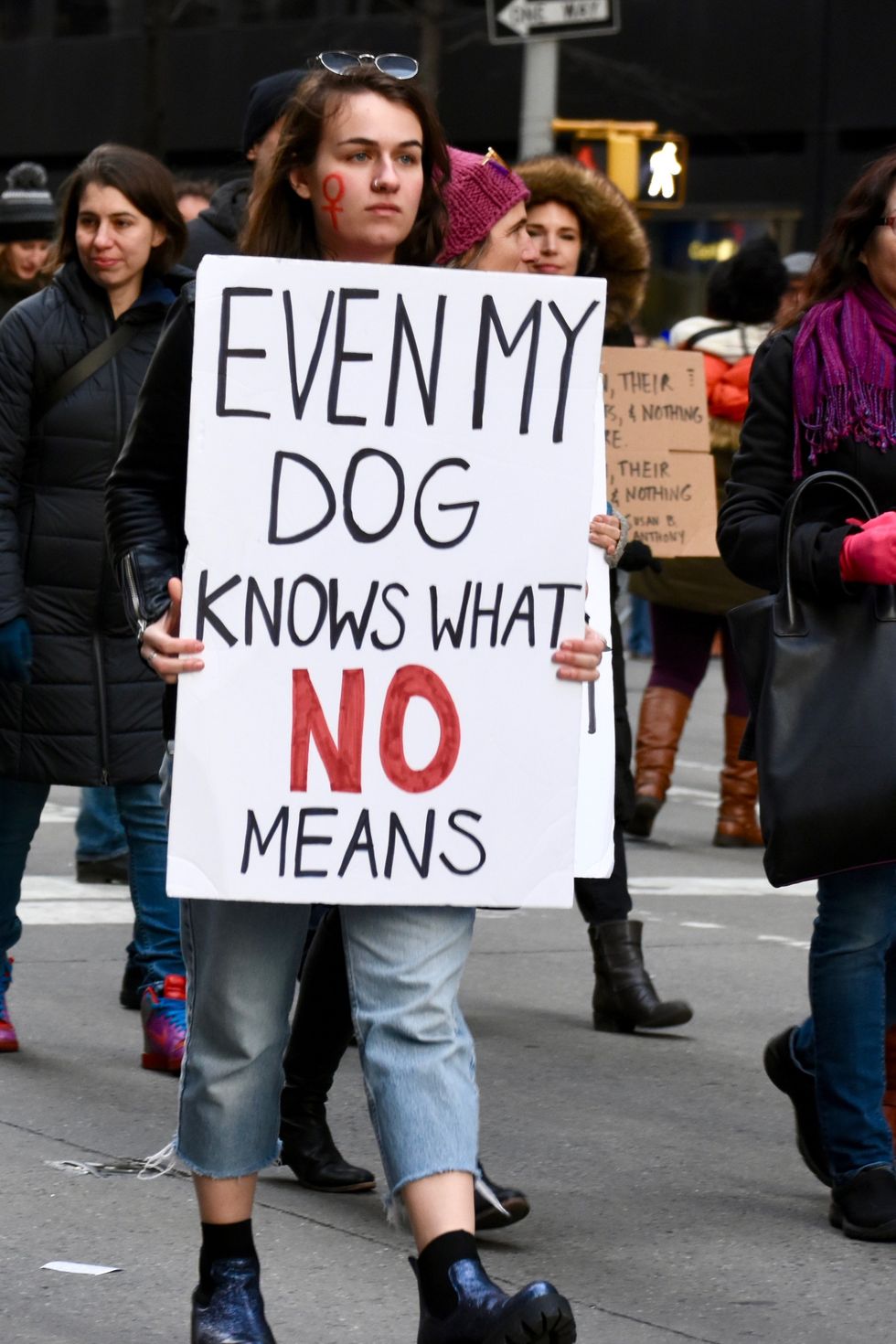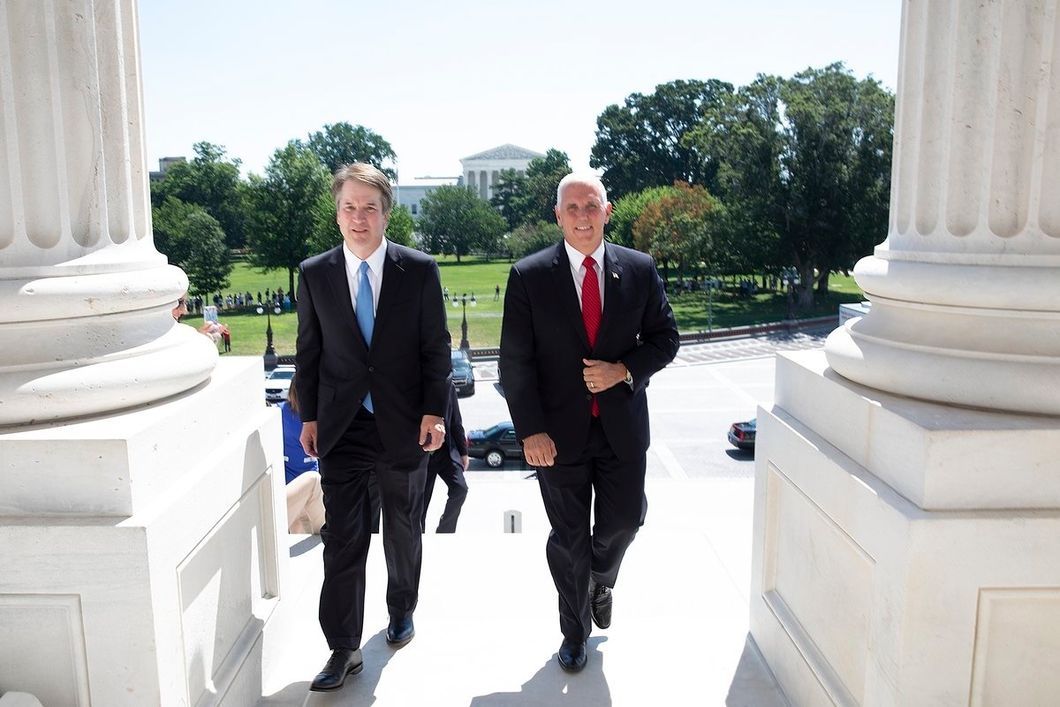With justice being sought by sexual assault victims everywhere in the wake of the Kavanaugh confirmation and #MeToo, it's a scary time for men. Sexual assaulters are, wait for it... being forced to face what they've done! Of course, it won't affect them too much--Brett Kavanaugh is set now to become one of the nine justices on the Supreme Court, which is, you know, the highest court in the United States.
Anyways, here are some ways to protect yourselves, boys.
1. Don't verbally or physically sexually harass someone

Do not cause someone, be it an acquaintance, a coworker, or whoever, to feel uncomfortable. This includes not asking for sexual favors in return for career advancement, not making lewd comments to or about someone, and anything else that would qualify as sexual harassment. By not sexually harassing people, no one will accuse you of sexual harassment!
2. Don't touch someone when/where they do not wish to be touched
Another way of avoiding allegations is being mindful that not everyone wants to be touched. So unless you have their permission, do not touch them!
3. Don't forcibly grope or grab someone
Do not grope people, and the overwhelming odds are that no one will accuse you of groping them, since you didn't grope anyone!
4. Do not forcibly kiss someone
If you have not been given consent to kiss someone, then keep your mouth to yourself. Simple. No one will accuse you of forcibly kissing them if you do not forcibly kiss anyone!
5. Do not expose your privates to others when they do not wish to see your privates

The best way to not be accused of exposing yourself to a non-consenting individual or group is to not expose yourself to a non-consenting individual or group.
6. Do not forcibly penetrate (rape) someone
The most effective method of avoiding rape allegations is to not rape. It's very simple. Respect the choices and bodily independence of others.
7. Do not send unsolicited "sexts" or other explicit messages
Keep your messages PG unless you're given permission for them to be rated R. Got it?
8. Do not perform sexual acts on someone who is incapacitated or otherwise rendered unable to give proper consent

If they are too drunk, or in any other way too incapacitated to give a sober-minded "yes", then you may not proceed.
9. Do not stalk someone
Do not follow, make threats against, make repeated unwanted communications, or do anything to anyone else that would reasonably cause them to be fearful. By not doing any of these things, you will avoid being accused of stalking.
10. Do not verbally, physically, or sexually abuse others
Do not abuse others, and no one will accuse you of abuse.
11. Do not commit any acts of sexual assault, harassment, rape, or any other form of sexual violence

By Alec Perkins from Hoboken, USA (Even My Dog Knows What No Means) [CC BY 2.0 (https://creativecommons.org/licenses/by/2.0)], via Wikimedia Commons
The bottom line: as long as you do not commit any form of sexual violence, then the odds are that no one will accuse you.
To conclude, it is not a scary time to be a man. It is a scary time to be a sexual assaulter. And that is a good thing. However, it is clear that we need to make societal changes in order to promote reporting and, ultimately, justice for sexual assault victims.
Victims should be believed, supported, and heard--and far too often, they are not. Studies from the National Sexual Violence Research Center show that 2-10% of sexual assault accusations are categorized as false, and even that number is inflated by the categorization of accusations that lack corroboration (something difficult to find in sexual assault cases) as false.
I'm not scared. And if you haven't committed any form of sexual violence, then you shouldn't be either. Let's support victims, not protect perpetrators.
For further information, see https://www.rainn.org/
















